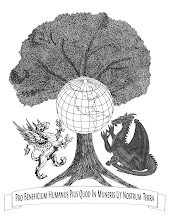Increases in economic growth and stable improvements in the standard of living have historically proven to be a key component in the liberalizing and democratizing of closed societies. As a consequence, America's key strategic initiative for the developing world, should be to work on an economic development road map with every country in the developing world.
In partnership with the UN, the IMF, the World Bank, the WTO, the G20, assorted international agencies, and the developing societies/nation states of our planet, we can create a
customized, modernized, multi-generational blueprint for every developing country. Only then can we begin fostering the economic growth and resource stabilization necessary to insure global stability. This program should include sustainable manufacturing, product and economic cycles consistent with a balanced, self sustaining free enterprise environment. Critical immediate improvements need to occur in the developing world in regards to infrastructure, food and medical aide packages, education, and resource allocations. The resources components are particularly significant, due to the fact that, many developing countries are resource rich but their governance is totally dominated by these resources, and therefore their potential and necessary economic infrastructures are completely under-developed. The boon of resource richness has largely proven to be the bane of good governance, and we need to help countries break that cycle.
The creation of free standing, vibrant, largely self sufficient economic systems, coupled with solid state infrastructures are the single best path to perpetuating and growing local and regional economies. Our international legacy as a nation should be our sustainable contribution to producing viable collective prosperity and security in the developing world. Creating economic growth and sustainability, is the first step toward securing the long term judicial, governance, media and lasting societal reform process, and is essential for the creation of stable nation states that function successfully, observe international human rights conventions, and other international codes of conduct. America needs specifically to not force democracy on nations that are largely unprepared for it. This is an obvious departure from our current stated objectives, which we attempt to execute throughout the world by force, bullying, or proselytizing our way of living on others.
We need to acknowledge that if the citizens of a nation, struggling to survive, can not meet the most basic considerations of development: even the most basic 1st level of the survival pyramid needs, democracy is untenable and will devolve into something more sinister.
Once we acknowledge that fostering economic development is the key to success abroad, and we are seen as actively participating in generating that development, we will achieve considerably more traction on our other goals for governance, jurisprudence etc.
Further, greater economic development involvement, as an entry point into the diplomatic process will prove insufficient long term, unless we work diligently to insure that the gains of that development are not consolidated into the hands a few. Creating economic development structures and strategies that achieve balanced and widely dispersed, well seeded gains throughout these societies is critical.
Once these massive undertakings of diplomacy and economic strategy are processed and implementation is begun, we will have the good will and collateral available to assist with societal reforms. Contrary to the opinions of some noted politicos, this approach does not compromise our values, it does produce positive results and it needs to be our core strategy for addressing the needs of over three billion fellow global citizens who need our leadership. And, when taking the long view it is obvious that our future depends on this idea as much as theirs does.

No comments:
Post a Comment